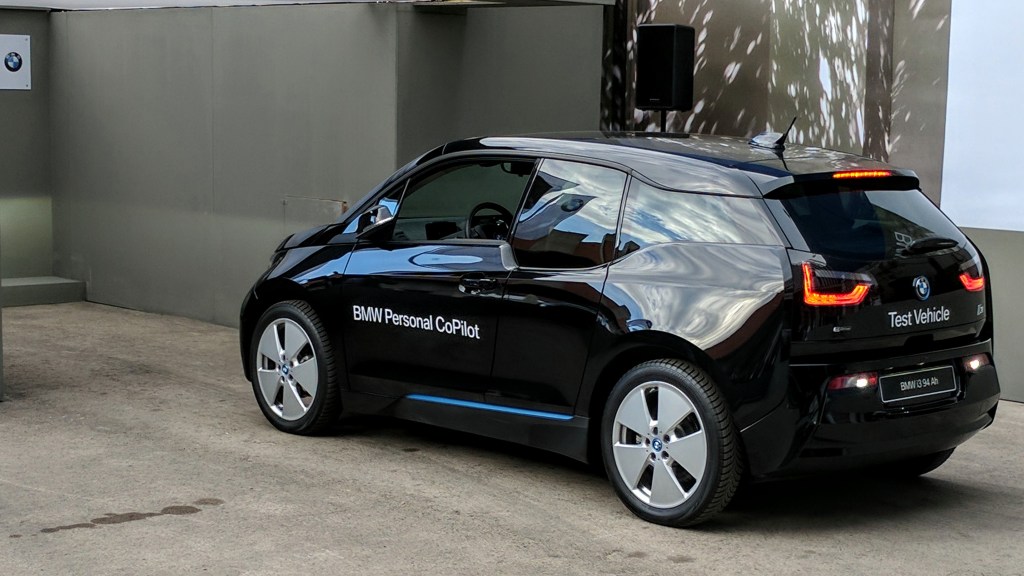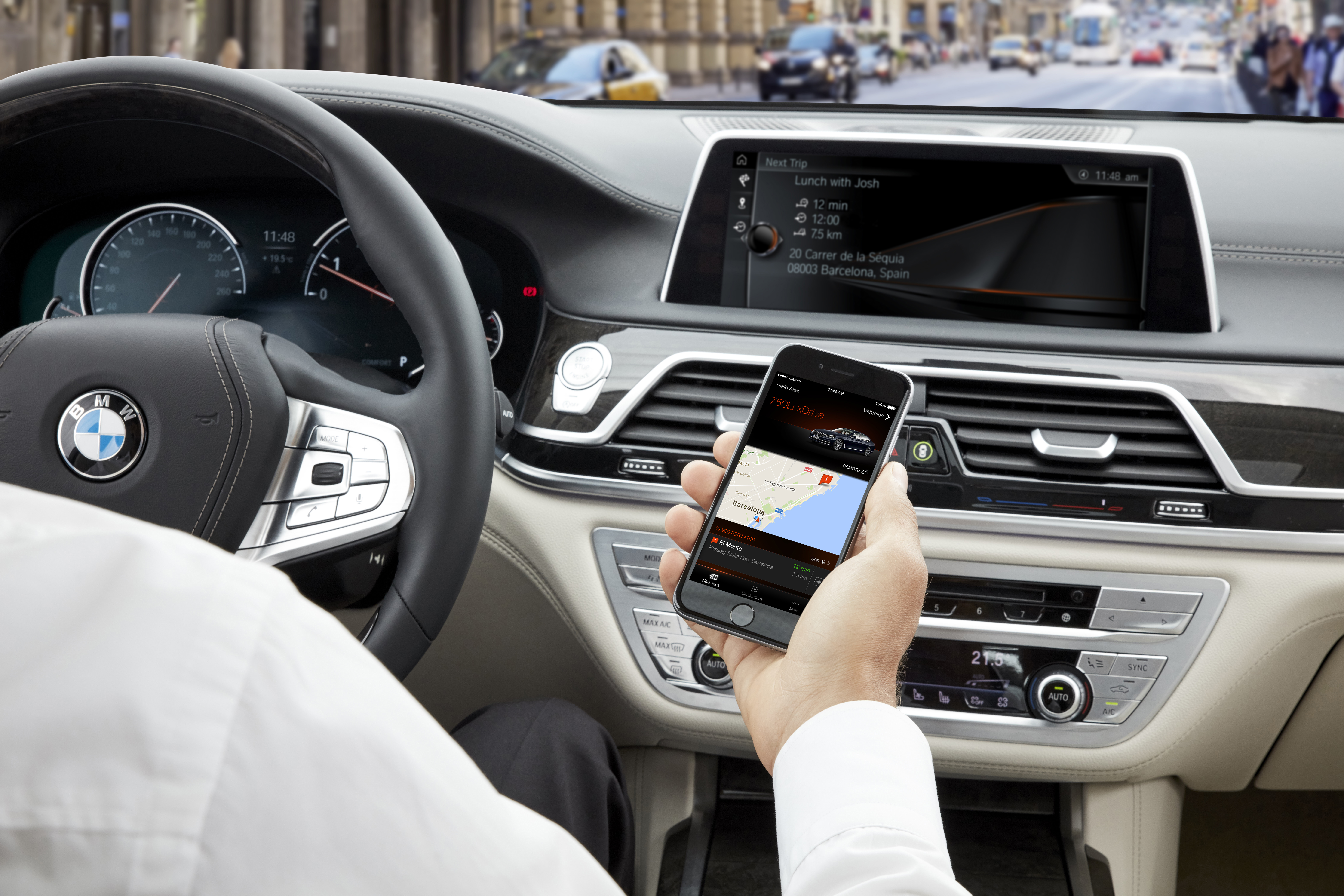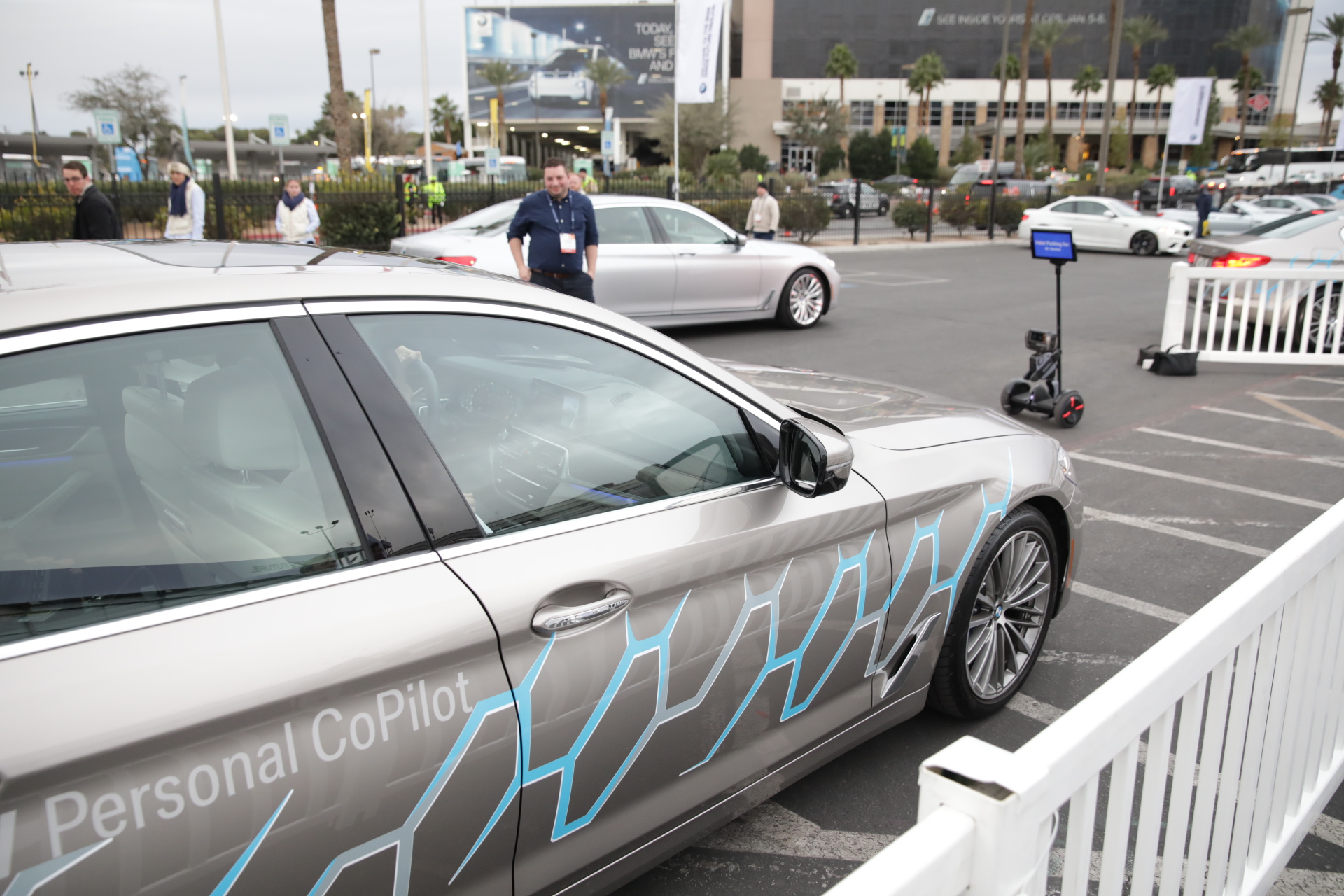Like CES, the Mobile World Congress in Barcelona also now attracts its fair share of car makers. Ford was an early adopter a few years ago, and now others are joining the fray, too. I sat down with Dieter May, BMW’s senior vice president of Digital Services and Business Models (in an i3, of course).
During our conversation, we touched upon quite a few topics, ranging from self-driving cars, to the future of car ownership and the new business models that in-car technology enables. “We offer [Apple’s] CarPlay as an option but not Android Auto,” he said. “We believe the changes that are coming to the inside of the car and the user experience — like self-driving cars — you have to control the customer interface. That’s part of the brand experience and for that, I don’t want to have an Android screen and I especially want to be able to deeply integrate these systems.”
He expects that the car of the future (especially when we’re talking about autonomous cars) will offer far more personalization options, which in turn will enable new business models, too.
“If you have six screens in the car, you also get gesture control, voice control with a personal assistant, etc.,” May said. “You need to have control over that user experience — maybe you can get away with it if you’re a ‘mass producer,’ but not in the premium segment.”
To do this, BMW built its own cloud platform that saves user preferences and other data about a car online and then allows drivers to take their profiles and preferences with them from car to car, for example.
Instead of Android Auto (and to some degree, CarPlay), BMW is focusing on A2A (Apps for Auto), which is part of the company’s ConnectedDrive platform. That allows apps to integrate deeply (and safely) with the car and, because it provides a stable developer interface, it allows the company to innovate faster, according to May. That’s mostly because it allows his group to work on its part of the in-car technology stack without having to stick to the slower innovation cycle that dominates the actual hardware part of the car business.
One area where BMW is far more excited about working with third parties, though, is personal assistants. The company already showed off prototype integrations with Amazon’s Alexa and Cortana, but May believes that none of them are currently great for everything, so what he wants to build is a system that can talk to all of them.
“We were the first car manufacturer who launched this at scale with Amazon because we were able to easily integrate it with our cloud platform,” he explained when I asked him about BMW’s work with Alexa in the car. He also acknowledged, though, that BMW — just like any other car manufacturer — has a lot of work left to do. “I believe this is a unique opportunity to position ourselves against the existing app ecosystems. It gives us a new opportunity because you’re not so dependent on them but new ecosystems are also on the rise. […] But if you’re sitting in a 7-Series BMW, you don’t want your customers to have to say ‘Hey Alexa, roll up the windows. And that’s all about the brand, of course.”
In his view, all of the assistants have different strengths. Bixby will probably be great for IoT and controlling your Samsung devices, while Google will be great for search, Amazon for e-commerce and Cortana for connecting the car to the Skype and LinkedIn ecosystem. “In real life, you also talk about different topics with different people,” he argued, and added that he doesn’t believe one company will be able to serve all needs equally well. For a car manufacturer like BMW, that means it has to figure out how to integrate all of them inside and outside the car.
How long will it take before we’ll see this in the car? “Our product cycle is pretty much CES-to-CES, May joked. “A year ago we showed Alexa and in August it was on our platform and scaled up. The same goes for Cortana. We’ve demonstrated it and by next CES, we should have a production-ready version.” Indeed, he gets an annual budget for his group and the group is then expected to deliver by the end of that year. That may not look like rapid innovation, but compared to what product cycles in the car industry traditionally look like, it’s extremely fast. His group plans from quarter to quarter, while it typically takes a few years to get a car from concept to production run.
Because of this, having a platform with stable developer interfaces is key because it allows the developers to gain a degree of independence from the underlying car platform.
Like other manufacturers, BMW hopes that its platform allows it to extend its relationship with those customers beyond the showroom.
May has some interesting ideas about new business models, too, especially now that BMW — like other car manufacturers — is focusing on extending its relationship with its customers beyond the showroom. If all of a car’s features are controlled by software, after all, then you end up with lots of new features you can sell, too. BMW isn’t interested in sharing revenue from hotel bookings through its in-car platform, though. They have to be about the driving experience. What May is thinking about is selling cars that already feature all the hardware options but then give you the option to buy access to extra features, like a heated car seat or an extra 50 horsepower for that road trip through the Alps (and your car could even suggest this because it knows if there is a lot of traffic or that you’re taking a hilly road or may want to speed down the German Autobahn).
In May’s perfect world, every feature in the car would have an IP address. You’d only produce one SKU of the car and then you could enable and disable features as needed — maybe forever or under a subscription model.
This, May says, makes more sense for a company that operates at BMW’s scale than making 2 Euros for a booking through TripAdvisor.
Self-driving cars will change how people think about cars and car ownership. May acknowledged as much, and noted that the BMW of the future may measure its success not by how many cars it sells but how many miles per month people drive its cars. “It’s a really exciting industry right now. The convergence of car and internet technologies, artificial intelligence, autonomous driving — they are all coming together,” said May. “That’s a core industry for Europe and Germany. That opens up plenty of opportunities but also risks.” To compete, BMW hired hundreds of people — but not in Silicon Valley, because May doesn’t believe it can compete with Google and the other internet companies for talent there. “These are 24-year-olds who want to work somewhere for two years as a short gig and then move on. Those are not the people we need — and I can’t exactly promise them that we’ll have a massive IPO that’ll make them millions, either.”
He doesn’t seem to think that Uber and others are an immediate concern for the traditional car manufacturers, but he’s also clearly keeping an eye on that. “But I’m convinced that if you’re not fast enough, you’ll definitely lose. That’s a fact.”
BMWs tend to be fast, but like all of its competitors, the company is acutely aware that it is now operating in a rapidly changing market — and that gives competitors a chance to take market share away from it.

































Comment